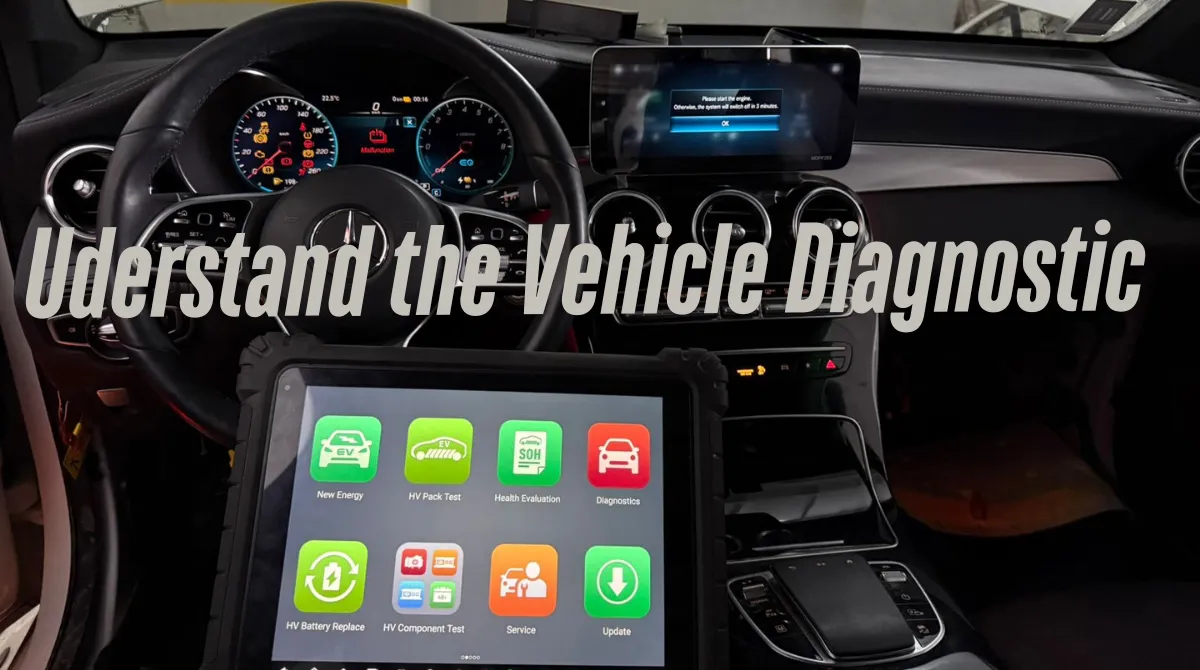In the modern era, owning a vehicle is as essential as ever, whether you’re commuting to work, heading to school, or simply navigating life’s daily demands. Like a yearly physical health check, your car needs regular diagnostic tests to ensure it’s running smoothly and safely. A diagnostic check is a process that allows drivers to identify potential issues within their vehicle’s systems.
Modern vehicles are equipped with extensive computer networks, featuring integrated systems and components designed to alert you to problems before they escalate. These computerized systems work like a doctor, running tests to detect errors or malfunctions and providing information that helps mechanics rectify the issue. For example, a diagnostic test can examine the engine, brakes, or other related systems to keep your car in optimal working order and prevent expensive repairs.
At trusted auto shops like Pantech Auto Technicians in Guildford, Surrey, expert mechanics use specialized diagnostic tools, such as OBD-II readers, to search for error codes and identify the source of problems. Whether it’s a minor fix or a significant repair, this proactive approach ensures your vehicle remains reliable for every journey. If you have questions or notice a problem, it’s always wise to ask your mechanic and schedule your next maintenance appointment. By addressing trouble spots early, you can drive with confidence, knowing your car is ready for the road ahead.
Understanding Vehicle Diagnostics

In modern vehicles, diagnostics involve advanced computer systems and digitized components that work together to ensure the car is running smoothly. When a check engine light or other warning signal appears on the dashboard, it often points to a specific issue that needs attention. Using specialized software, technicians perform diagnostic tests to gather data from the car’s engine, transmission, oil tank, and other key systems. This information, relayed through digital analysis, helps identify faults before they escalate into expensive problems.
The process starts with checks using industry-standard devices to scan for trouble codes that pinpoint the problem. Whether it’s a failing throttle, brake system, or emissions issue, the collected reports are analyzed by mechanics or a service provider. While diagnostics don’t necessarily fix the issue, they help auto technicians plan a course of action to resolve it. Routine inspection procedures and preventative measures, such as scheduling regular maintenance appointments, ensure vehicles stay in optimal condition, reducing downtime and costly repairs.
What areas of a vehicle are tested?
Engine System Breakdown
- The engine system is one of the most important aspects of a vehicle. It involves many crucial components that ensure the proper functioning of the car.
- Fuel supply and air filters work together to maintain the engine’s efficiency. Sensors monitor these elements, detecting any faults that could cause problems in the combustion system.
- Engine diagnostics help pinpoint issues such as faulty fuel injectors, ignition coils, and throttle issues. This helps prevent serious engine malfunctions and ensures the engine runs smoothly.
- Diagnostic tests reveal error codes and malfunctions, allowing technicians to quickly identify problems and rectify them before they become major issues.
Electrical Systems Breakdown
- The electrical system of a vehicle is made up of several vital components such as the battery, alternator, and starter motor. These systems power the car’s electronics, including the ignition system.
- Power steering pumps, battery, and ignition systems must be checked regularly to ensure they work without issues. Electrical systems diagnostics help monitor the car’s components and provide vital information to identify potential problems early.
- Modern vehicles are powered by computerized systems that use sensors, microchips, and built-in processors to monitor electrical systems for any faults. Diagnostics help detect electrical problems before they affect the overall performance of the car.
Brake Systems Breakdown
- Brake systems in vehicles must be carefully checked to ensure safety. Diagnostics focus on checking the condition of brake pads, brake lines, and fluid for any leaks or damage.
- Brake wear is a key diagnostic focus. Special tools like a micrometer are used to measure the thickness of the brake pads and ensure that they are within acceptable limits for safe driving.
- Diagnostics also detect issues in brake systems, including faults in brake sensors, coil springs, and other components that could lead to a breakdown in braking performance.
Early Detection of Problems Breakdown
- Early detection of problems in vehicles helps prevent costly repairs. Diagnostic tests are useful in identifying issues such as engine malfunctions, transmission problems, and brake system failures before they worsen.
- Preventative measures based on diagnostic results can help drivers avoid serious problems that would otherwise lead to expensive repairs. Diagnostics give a clearer picture of the vehicle’s health and help address minor issues promptly.
- By detecting problems early, drivers can save money on repairs and keep their vehicles running smoothly, without facing major breakdowns.
Improved Fuel Efficiency Breakdown
- Vehicle diagnostics help maintain optimal fuel efficiency. Sensors and diagnostic tests can identify issues that could affect how efficiently your car uses fuel, such as malfunctioning fuel injectors or faulty engine components.
- Fuel efficiency is impacted by how well the engine is running. If fuel supply is not optimal or airflow is restricted, the car will consume more fuel. Diagnostics can help identify and fix these issues, saving you money at the pump.
- Keeping the engine system in check also improves fuel consumption by optimizing the performance of the car, ensuring better fuel economy.
Enhanced Performance Breakdown
- Vehicle diagnostics directly improve performance by identifying problems with crucial systems such as the engine, transmission, and exhaust system.
- Diagnostics can highlight faults that may cause poor performance, like a clogged air filter, faulty throttle, or problems in the engine’s combustion system.
- Regular diagnostic checks ensure your vehicle is always running at its best, enhancing driving performance and avoiding underperformance caused by unnoticed faults.
Compliance with Emission Standards Breakdown
- Vehicle diagnostics play a crucial role in maintaining compliance with emission standards. Emission tests ensure that your car is not producing harmful pollutants.
- Sensors and exhaust system checks help identify any faults in components such as the catalytic converter or oxygen sensors, which could lead to higher emissions.
- Diagnostic tools help detect when components are not working properly, ensuring the vehicle meets emission standards and avoids failing emissions tests or incurring fines.
How often should you conduct vehicle diagnostics?
It’s important to stay on top of vehicle diagnostics to keep your car running in good condition. For most vehicles, it’s recommended to perform a diagnostic check at least every three months. This helps assess the status of various systems like the engine, electrical components, and other critical parts. If you drive an older car, diagnostics may need to be conducted more frequently, perhaps even every 60,000 kilometres or annually. If you notice the check engine light flashing or any malfunction, don’t wait too long—diagnostics can help fix issues quickly and prevent them from becoming serious problems.
While routinely performing vehicle diagnostics is key, it’s also wise to assess the performance of your car during routine maintenance appointments. Mechanics often recommend annual or quarterly checks to ensure that everything is working properly. The frequency can vary depending on how often you drive and the age of your vehicle, but staying proactive and using diagnostic tools can help you spot any issues early, before they get worse.
What is the importance of vehicle diagnostics?
Vehicle diagnostics are essential for keeping your car running smoothly and safely. The diagnostic tests can detect small faults before they become bigger issues, saving you from inconvenient and expensive breakdowns. Early detection of problems can prevent undetected errors from escalating, reducing the risk of serious failures like brake failures or engine issues while driving on the freeway. This proactive approach also helps to identify faulty parts and allow for their timely replacement, saving you money on repairs and avoiding catastrophic damage in the future.
In addition, vehicle diagnostics help improve fuel efficiency, as early detection of issues like a faulty oxygen sensor can prevent wasted fuel. This leads to enhanced performance, a smoother ride, and improved safety. Regular diagnostics also help ensure that your vehicle meets emission standards, especially in regions with strict regulations like the UK. By keeping your car in compliance and running cleanly, you’ll enjoy a more reliable and cost-effective vehicle.
How Much Does It Cost?
The cost of vehicle diagnostics can vary depending on the make, model, and service provider. Typically, basic checks and preventative measures are quite affordable, ranging from $40 for a simple scan to about £50-£100 in the UK for more in-depth analyses. For modern vehicles with sophisticated diagnostic systems, the price may increase, especially for luxury or sports cars, where issues could involve hidden problems requiring expensive repairs. However, these costs are much lower than the price of major repairs, which could run into hundreds or even thousands of dollars or pounds if left undetected. It’s best to conduct regular diagnostics as a cost-effective way to reduce future repair costs and avoid broken down situations.
FAQS
What is included in a vehicle diagnostic?
A vehicle diagnostic typically includes a test of the engine, transmission, ignition coils, fuel injectors, and exhaust systems. The diagnostics check also covers oil tank, coolants, airflow, and other systems to identify potential issues that might need repairs or replacement parts. The result is a detailed report, which may include recommendations for recoding or further diagnostics based on the findings.
How much does it cost to do a diagnostic on a car?
When considering car repair cost, the price of diagnostics varies depending on the state you live in. Mechanics charge a labor rate for diagnostic services, which often depends on the region. Let’s look at some examples across popular states in the U.S.:
| State | Labor Rate | Average Repair Cost |
| Florida | $142.74 | $253.55 |
| Texas | $145.86 | $251.67 |
| Georgia | $145.34 | $262.37 |
| California | $144.56 | $268.48 |
Is a car diagnostic test worth it?
A car diagnostic test is definitely worth it. It’s an investment that protects your vehicle, extends its longevity, and gives you peace of mind by spotting issues early.
What is can in car diagnostics?
CAN stands for Controller Area Network, a communication system used in the automotive world. It links electronic systems in a car, allowing them to communicate with each other efficiently.
How long does a full car diagnostic take?
A standard diagnostic test usually takes about an hour to an hour and a half. If there are complicated issues or multiple underlying issues, it may take 2-3 hours for further diagnosis, especially if components need to be removed for access and testing.
